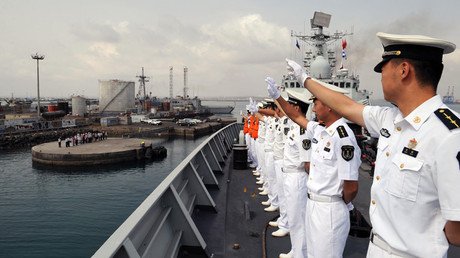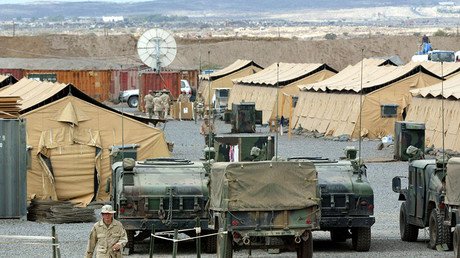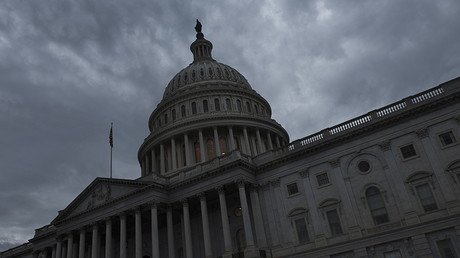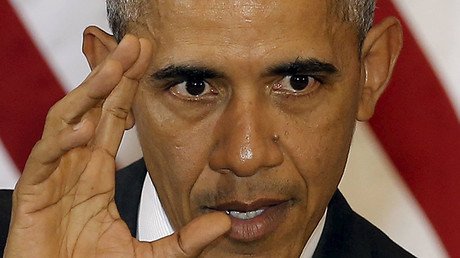China in Africa: Old powers sidelined as Beijing follows economic ties with first military base
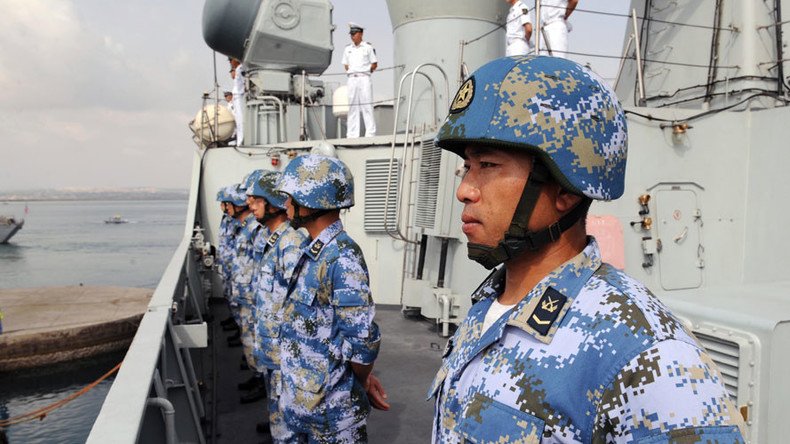
The opening of China’s first military base in Africa gives an additional foothold in a region where it already has much sway, thanks to economic ties. Some commentators see Africa as Beijing’s chance to preserve its manufacturing dominance for future generations.
In a joint ceremony with a local honor guard, Chinese troops last week opened their new naval base in Djibouti, a tiny nation in East Africa which already leases land to several facilities of foreign militaries. The Chinese troops are stationed right next to the Pentagon’s only permanent base in Africa, as well as Japanese, French and Italian forces.
Shortly before the opening, Beijing suggested that it may deploy its troops on Djibouti’s border with Eritrea in the north, where the two African nations contest sovereignty over a mountain and an island. The hypothetical deployment would fill a vacuum left behind by some 450 Qatari peacekeeping troops, who were withdrawn in June amid the kingdom’s diplomatic spat with other Arab nations.
Beijing stressed that the deployment has nothing to do with the opening of the base and would only be done under a UN mandate and with both parties to the conflict agreeing to this mediation.
China is already taking part in several UN peacekeeping missions in Africa, including in South Sudan, Mali and the Democratic Republic of Congo, and prides itself on being the biggest contributor of peacekeepers among permanent members of the UN Security Council, with over 2,500 people participating. Sceptics say Beijing milks its “minimal investment” in UN missions for propaganda effort.
China insists its military advances in Africa are purely logistical and aimed at supporting missions such as fighting piracy and providing humanitarian relief, although some experts see a potential for additional tension coming from increased militarization of the continent.
“The Americans have similar bases, not to mention the Europeans. So, on the ground itself, ultimately the African continent is becoming the staging ground for the next possibly-violent confrontation between the superpowers of the world in their so-called proxy battles,” African journalist and documentary filmmaker Ayo Johnson told RT.
Journalist Finian Cunningham concurs that the Chinese base may feed “American anxieties that Beijing is flexing its muscles globally,” but doubts it will go any further.
“China has legitimate concerns to safeguard its shipping routes through one of the globe's choke points via the Red Sea. The move is unlikely to spark a US-China military clash anytime soon, but the setting up of Chinese military base in Africa will add to American strategic fears that their global power is being undermined,” he told RT.
Investment protection
The trade route through the Gulf of Aden is far from the only thing the Chinese deem worth protecting in Africa. Over the past decade, China has significantly boosted its trade with the Dark Continent, rising from less than $5 billion in 2000 to over $103 billion during the 2015 peak, after which a drop in commodity prices tanked Africa’s exports, according to China Africa Research Initiative (CARI), a Johns Hopkins University research project.
The Chinese government has been heavily investing in African infrastructure projects. Even the HQ of the African Union, which opened in 2012 in the Ethiopian capital, Addis Ababa, was a $200 million gift from Beijing. Among other notable examples are the Merowe Hydropower Dam in Sudan, the Addis Ababa–Djibouti Railway and Algeria’s East–West Highway, in all of which Chinese funding and contractors played a crucial part.
Private Chinese money is playing a significant role in African economies too – bigger than previously believed, according to a recent report by McKinsey & Company. The consulting firm estimates that over 10,000 businesses owned by Chinese capital are operating in Africa today, 3.7 times more than listed by the Chinese Commerce Ministry. The report says 90 percent of those firms are private, challenging the view that the Chinese government is leading an African investment drive.
Among Chinese success stories in Africa is mobile phone producer Tecno, which won over the market with innovations targeting the specific needs of the local market. These include a phone featuring keyboard in Amharic, Ethiopia’s official language, camera software adapted to better capture darker skin tones, or longer-lasting batteries in budget models. The company is estimated to have more than 40 percent market share in Sub-Saharan Africa.

Chinese business ties with African nations appear to be shifting away from the “investment for natural resources” model, some analysts suggest. The reason is that China’s advantage of cheap and abundant labor force is shrinking, both due to rising wages in the country and Beijing’s curbing of an unsustainable population growth rate, which in decades would produce an older and wealthier society. Meanwhile in Africa, roughly half of the population is younger than 20 and poor, making the continent a tempting destination for outsourcing manufacturing. Provided that stable and secure conditions and safe trade routes out of Africa can be guaranteed.
US in retreat?
China’s economic presence in Africa is backed not only by troops, but also by soft power. According to a recent Pew poll, Sub-Saharan Africa is where China’s image is among the best in the world, with a median 59 percent of people viewing it positively and only 18 percent negatively. Only in Russia did a greater share of people say they like China (although Nigerians were even more favorable).
One of main points of criticism of China in the West – its human rights record – does not seem to bother Africans. Fifty-three percent of respondents there believe Beijing respects the personal freedoms of its people. So Hillary Clinton’s warning that China’s non-interference in domestic issues in Africa – contrasting to the US and the EU demanding reforms in exchange for investments and aid – amounted to “new colonialism” apparently fell on deaf ears.
As China’s influence in Africa grows, the US appears to be on the retreat, some experts warn. The Trump administration made it clear that it wants to cut African programs not directly related to security, which would conceivably diminish America’s soft power on the continent.
Of course, Africa’s glaring future as a global workshop of the mid-21st century is far from assured, some commentators believe. The Economist, for example, predicts that Chinese investment in African infrastructure and economies will not pay off, and in a decade Beijing will be either forced to write off bad debts or try to collect them by force.
